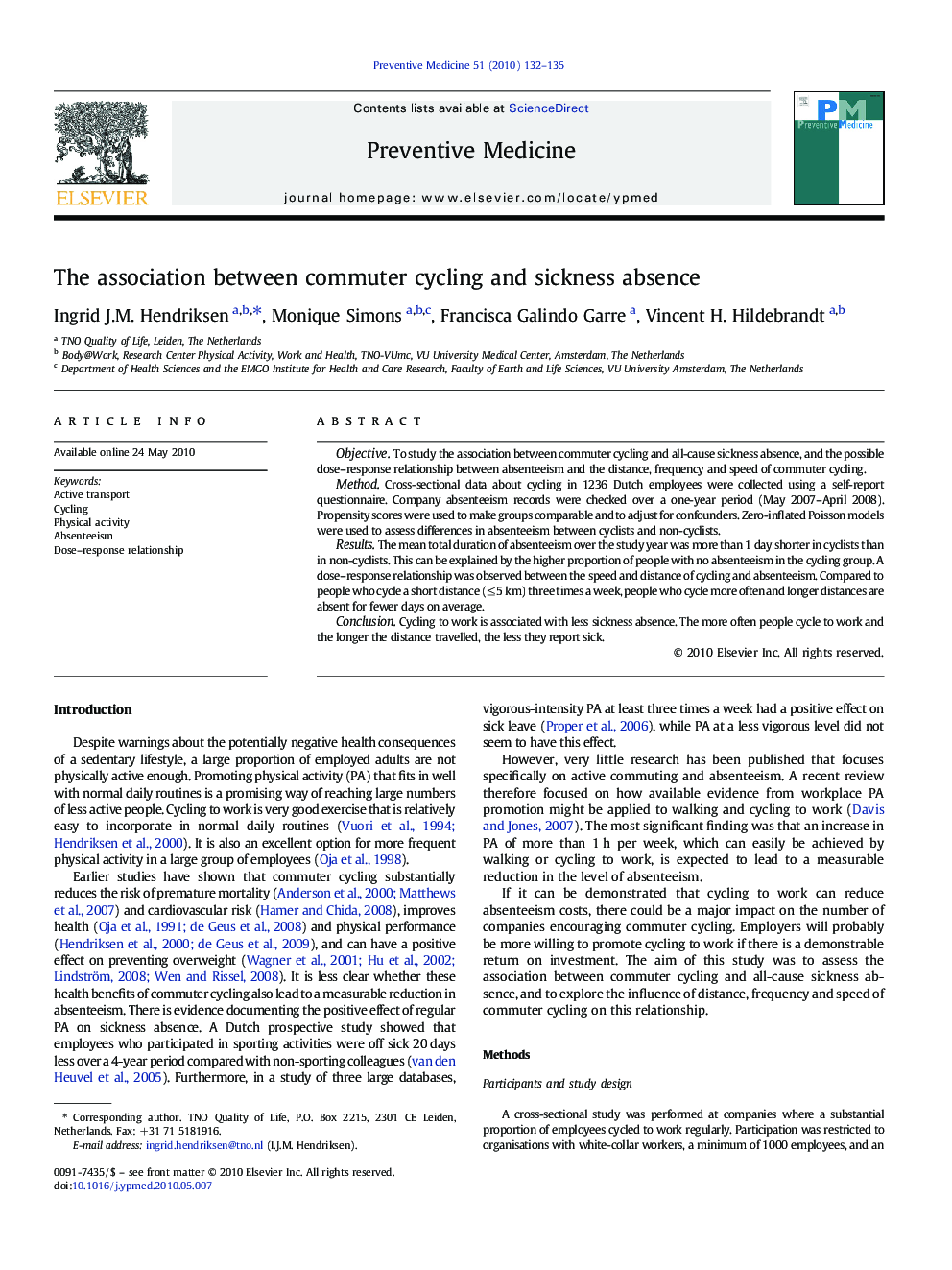| Article ID | Journal | Published Year | Pages | File Type |
|---|---|---|---|---|
| 6048426 | Preventive Medicine | 2010 | 4 Pages |
ObjectiveTo study the association between commuter cycling and all-cause sickness absence, and the possible dose-response relationship between absenteeism and the distance, frequency and speed of commuter cycling.MethodCross-sectional data about cycling in 1236 Dutch employees were collected using a self-report questionnaire. Company absenteeism records were checked over a one-year period (May 2007-April 2008). Propensity scores were used to make groups comparable and to adjust for confounders. Zero-inflated Poisson models were used to assess differences in absenteeism between cyclists and non-cyclists.ResultsThe mean total duration of absenteeism over the study year was more than 1 day shorter in cyclists than in non-cyclists. This can be explained by the higher proportion of people with no absenteeism in the cycling group. A dose-response relationship was observed between the speed and distance of cycling and absenteeism. Compared to people who cycle a short distance (â¤Â 5 km) three times a week, people who cycle more often and longer distances are absent for fewer days on average.ConclusionCycling to work is associated with less sickness absence. The more often people cycle to work and the longer the distance travelled, the less they report sick.
